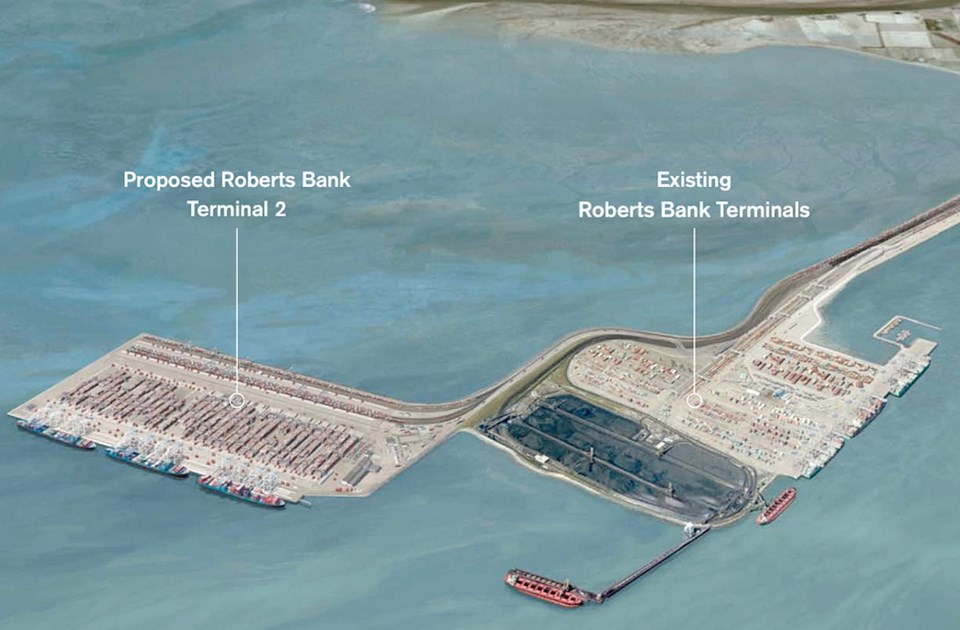Despite the noise from its Deltaport container terminal operator, the Vancouver Fraser Port Authority (VFPA) remains confident the Roberts Bank Terminal 2 (T2) project is the right project at the right time for Canada.
That is what port authority president and CEO Robin Silvester had to say last week, responding to a Federal Court ruling dismissing Global Container Terminal’s (GCT) allegations of bias against the port. The court issued its ruling July 26.
Having put forward a competing proposal to add a fourth berth at the existing container terminal in Delta, GCT in 2019, filed an application for a judicial review, challenging the port authority's decision-making in relation to its long-term planning for delivering container capacity.
Still in the application phase and waiting for a decision by the federal government, the VFPA is proposing to build a three-berth terminal on a new man-made island adjacent to the existing facility, having also turned down GCT’s proposal.
The port authority’s T2 project would provide an additional 2.4 million twenty-foot equivalent units of container capacity per year at Roberts Bank. GCT would not be the operator of the new facility.
In a news release, Silvester said globally-based supply chain problems that Canadians are experiencing now are a preview of coming made-in-Canada supply chain problems if urgently needed capacity is not forthcoming.
“That’s why the port authority is leading the Roberts Bank Terminal 2 Project under our public interest mandate, leveraging more than a decade of experience delivering high quality, sustainable infrastructure projects for Canada and local communities. Despite the noise from GCT, we are confident the Roberts Bank Terminal 2 Project is the right project, at the right time, for Canada and Canadians.”
Judy Rogers, chair of the port’s board of directors, agreed, saying the ruling made by the Federal Court of Canada conclusively rejects GCT’s case and is a major victory for port authorities across the country.
“Given their federal mandate to enable Canada’s trade through ports across the country, it is essential that Canada Port Authorities are empowered to make complex and difficult decisions focused on the best interest of Canada’s trading needs and not corporate shareholders,” said Rogers.
Noting it is reviewing the ruling, GCT said in a statement it believes that the court ought to have taken the further step of ordering the remedies sought by GCT once it found that VFPA failed to treat GCT’s project enquiry fairly, or in a manner consistent with the type of conduct expected of regulators who have been granted the sort of statutory authority that VFPA received from the Government of Canada.
“The GCT Deltaport Expansion - Berth Four (DP4) project continues to advance and reach important environmental assessment milestones. Recently, the BC Environmental Assessment Agency (BCEAO) issued the Process Order, and the Impact Assessment Agency of Canada (IAAC) issued the final Joint Guidelines and Notice of Commencement, moving the project forward to the Impact Statement Development Phase,” GCT noted.
“The GCT DP4 expansion project incrementally expands our existing container terminal, adding up to 2 million TEUs of capacity and is fully funded by private investment. The Port of Vancouver’s Roberts Bank Terminal 2 (RBT2) project builds a new publicly-funded $3.5 billion artificial island in the Salish Sea with environmental impacts have been described as ‘permanent, irreversible, and, continuous.’ DP4 will bring capacity to market in a similar timeframe to the RBT2 project.”



